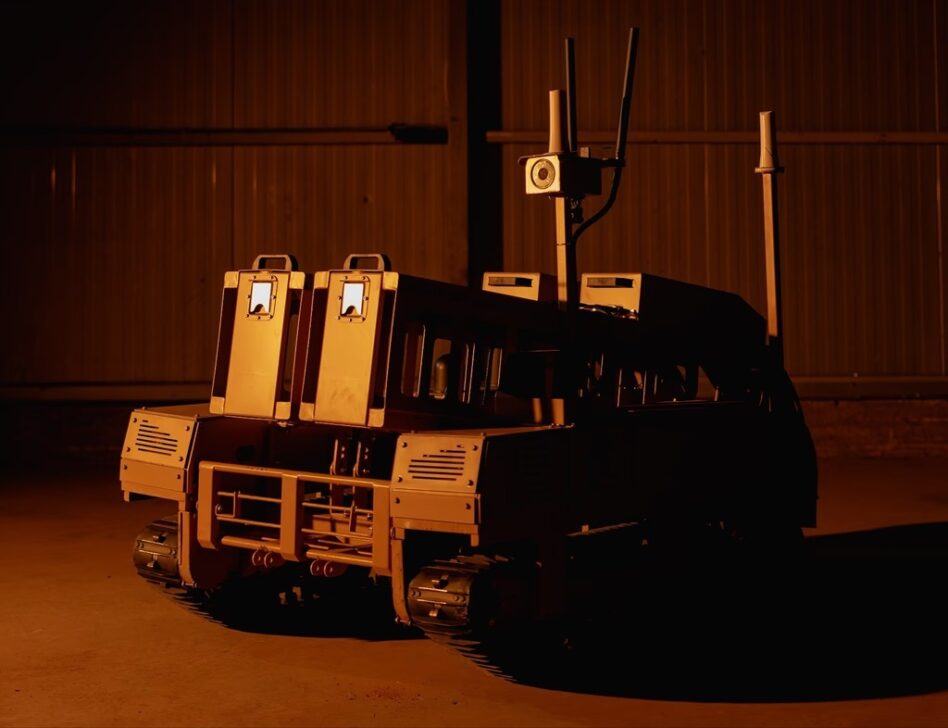Lest you forgot amidst the chaos of, well, everything, there is still a war waging in Ukraine.
In July alone, Russia has launched its largest drone attacks so far on the country, allegedly assassinated a high-level intelligence officer, and killed at least 232 civilians, making this the deadliest month of the war in about three years. Plus, there’s been all the will-they-won’t-they drama with US weapons shipments.
And it looks like the money is still flowing into the country’s defense tech, too. On Friday, Ukrainian-American investment firm MITS Capital announced a $3.74M investment in Ukrainian unmanned ground vehicle (UGV) manufacturer Tencore.
According to MITS, this was the first direct US investment concluded under Ukraine’s Diia.City scheme to expand foreign investment in the country’s defense tech industry.
“This agreement creates a clear legal path for international investors to deploy capital directly into Ukrainian entities without workarounds,” MITS Capital CIO & Founding Partner Denys Gurak said in a statement.
Rise of the robots: Tencore was founded in February 2024, and since then has doubled down on making UGVs designed to be modular and adaptive to rugged terrain.
- The company’s flagship product is called TerMIT, a UGV that looks a lot like a mini, robotic tank.
- So far, the company has produced 800 of these ground drones and plans to scale up to 2,000 by year-end.
- According to Tencore, over 20 brigades in Ukraine are already working with their platforms on logistics, mining, and combat.
- The company has scaled from five to over 200 employees in a little over a year.
TerMIT is designed to be highly mobile and adaptable to mission needs. The UGV:
- Has a range of 20km (12.4 miles) and can travel at 10 km/h (6.2 mph)
- Can be controlled at a distance of up to 20km.
- Can carry a payload of up to 300kg (661lbs). That can be everything from wounded soldiers, to cargo, to an automated Browning machine gun or a MK19 grenade launcher, according to the company.
- Can also carry out automated mining and demining.
According to a release by MITS, this new tranche of cash will go into R&D and expansion of manufacturing capabilities.
Upping the ante: Diia.City was—amazingly—unveiled just a few weeks before the full-scale Russian invasion of Ukraine in February 2022. The legal and tax scheme was designed to attract foreign investment and tech companies to Ukraine, offering ultra-low taxes, flexible hiring, and investor-friendly legal tools. The idea is to turn Ukraine into a global tech powerhouse—even in wartime.
A few of the Diia.City perks include:
- 5% personal income tax for tech workers (vs. ~18% standard)
- 9% corporate tax on extracted capital or 18% on profit
- Zero dividend tax if paid no more than once every two years
- Flexible contracts tailored for tech hiring
- 25-year legal and regulatory stability
- Investor-friendly legal tools, including ESOPs, convertible loans, and preferences
Think of it as a virtual special economic zone. Currently, more than 2,100 companies employing more than 24,000 people are part of the program.
According to MITS Co-Founder and CEO Perry Boyle, his fund’s investment sets a precedent for other US investors and helps Ukraine become more resilient in the face of ongoing Russian aggression. Plus, it helps Ukrainian companies integrate with the US and Europe.
“Our goal is to get Russia out of Ukraine and Ukraine into NATO’s defense supply chain,” Boyle said. He also expects to see more of this foreign investment soon.

